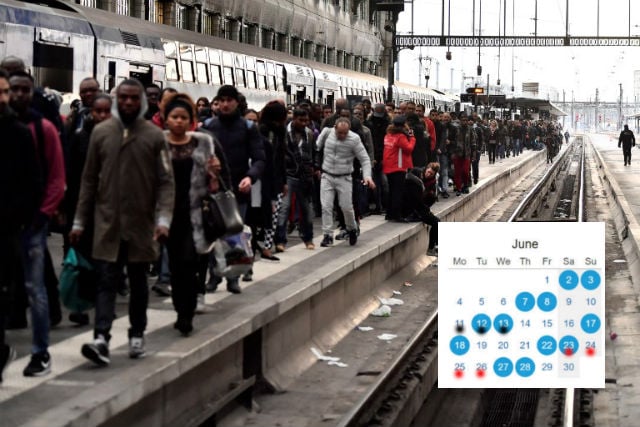Even if President Emmanuel Macron looks likely to win his battle against the French rail unions, rail strikes are due to continue until the end of the month and possibly on into the summer if some unions get their way.
Rail workers have staged weeks of rolling strikes against the plans, vowing to walk off the job two days out of every five until June 28. (Scroll down for calendar below)






 Please whitelist us to continue reading.
Please whitelist us to continue reading.
Member comments